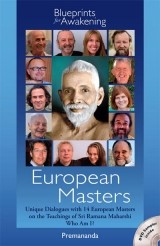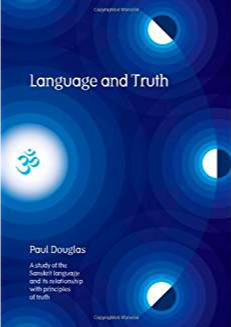Do the Vedas really contain any advanced knowledge as so many people claim they do? (Quora)
I would say the Vedas contain the most fundamental and ‘advanced’ knowledge there is, though usually portrayed in the form of paradox (analogy, metaphor, story, etc.), so that one has to crack the code in order to find the wealth hidden in them. That knowledge is not like empirical science, which is cumulative and provisional, and can be said to be somehow contained in the latter, even if in embryonic or potential form. That knowledge or perspective is metaphysical rather than mystical. According to the Vedas there is one and only reality: consciousness (brahman, the Absolute, etc.), which pervades the whole universe; it is immanent in it as well as transcendent… “the smallest of the small, the largest of the large”. It cannot be measured or understood by the mind, for which it is ineffable, but it is that by which the mind comprehends… it cannot be expressed in words but by which the tongue speaks… it is eye of the eye, ear of the ear, mind of the mind, as expressed in the Upanishads.
Modern physics is having a hard time trying to explain away what consciousness is in terms of physical phenomena (neuronal activity in the brain), but consciousness is not an irreducible phenomenon or datum; it is reality itself, everything being comprehended in it (theories, doubts, projections, emotions, things, thoughts, intelligence, observer and observed, you and I). For the Vedas reality is one, and present physics is trying to find out in which way it is so (‘theory of everything’, ‘unificatory theory…’). Not all physicists are reductionist, some of them having seemingly mutated into philosophers with an understanding of the core of Vedic teachings.
…………………………………………………………………….
Is everything metaphysical? (Quora)
‘Is everything metaphysical?’ My answer is a resounding Yes! despite the widely accepted, prevailing, physicalist theory: everything is reducible to matter/energy. This last position is being insistently questioned ever since the rise of the new physics (the role of the observer, uncertainty principle, etc.). Nobody knows what matter is intrinsically, and why an atom is an atom – its nature is a mystery; scientifically we can only talk about mechanism, ‘behavior’ or function, in relation to physical processes. Thus, everything is metaphysical – including tables and chairs or, rather, the material they are made of, wood (hilos) – which means non-reducible to the physical. Psychology, mind, selfhood are equally non reducible to the physical – nor are they purely mental or purely conceptual – , thus they are metaphysical, however psychologists may protest. ‘Man’, ‘personhood’, are metaphysical or philosophical notions.
Metaphysical doctrines are couched in LANGUAGE (concepts, plus logic and reasoning -tarka), which de facto is dualistic, but that is a springboard and a conditio sine qua non for realization or uniting with the TRUTH or REALITY which is indivisible, non-relational, and inexpressible by the mind (anubhava).


